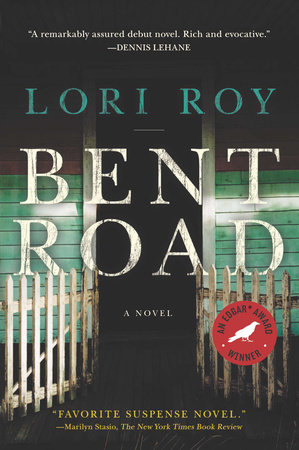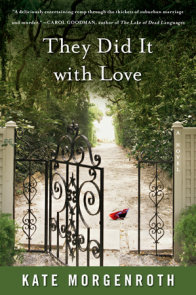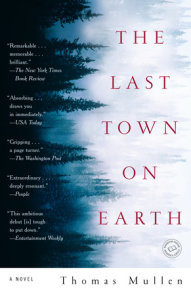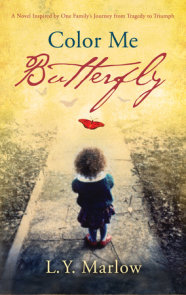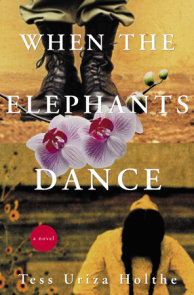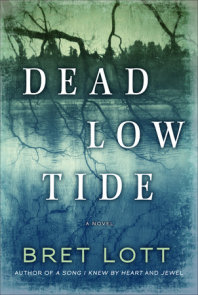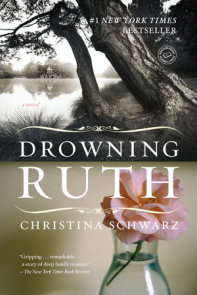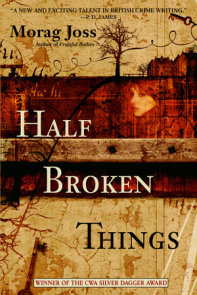READERS GUIDE
Questions and Topics for Discussion
INTRODUCTION
The year is 1967 and the Scott family, made up of Arthur, his wife Celia, and their three children pull up stakes and move from Detroit to Arthur’s small home town in Kansas. Already reeling from the move and struggling to adjust, Arthur’s silence about the mysterious death of his sister Eve 25 years earlier only adds to the strain on his family.
However, when a local girl, Julianne Robison, goes missing not long after they move back into town, the Scotts find themselves hurtling down a treacherous path leading to old suspicions, startling secrets, and a host of powerful emotions they all thought were long since buried.
Bent Road is a story about overcoming fear. It is about facing one’s past and coming to terms with grief. It is a story that explores the lengths a person may go to in order to protect himself and his family, and the consequences that await him when he does.
ABOUT LORI ROY
Lori Roy was born and raised in the Midwest, where she was a tax accountant before turning her focus to writing. Roy lives with her family in west central Florida. This is her first novel.
A CONVERSATION WITH LORI ROY
Managing multiple points–of–view is a delicate balancing act. I have heard it likened to spinning plates. Each POV needs a periodic nudge or that storyline will tumble. I would like to say I had an organized approach to constructing BENT ROAD, but that would be a lie. I wrote the first draft, okay.the first few drafts, without regard to structure. As the story unfolded, I told each scene from the point–of–view of the character who most interested me. There are a few scenes I thought had a significant impact on more than one character, and I felt it worthwhile and important to the story to tell that same scene from another point–of–view.Q. So much of the action in this book overlaps. How did you go about constructing this story? How did you juggle so many characters and locations? What challenges did you face in stringing together the chapters?
Once I completed the first few drafts, I set about trying to bring order to the book. This involved a wide variety of colored post–in notes, many of which were wadded up and tossed about my office or occasionally at one of my kids if they walked in at an inopportune time. During this editing process, which involved working my way through the novel numerous times, I attempted to bring consistency and individuality to each character and location. Also during this process, I considered the arc of each scene and each chapter and ultimately of the entire book. This involved challenging the starting point of each scene, the purpose of each scene and how its ending would compel the reader to turn to the next page. In the end, the process is a bit like tuning a musical instrument. I kept at it until I struck a note that didn’t make me cringe.
Q. Each chapter pays very close attention to the details surrounding and affecting each character. How would describe your writing style? What do you see in those details that you find compelling?
I guess I would say my writing style cuts pretty close to the bone. Adverbs are one of the things that make me cringe, so I use them sparingly, and I am very leery of a thesaurus. A reader won’t find any ten dollar words in my work, unless I have a character prone to such dialogue. I certainly feel that if something is worth creating on the page, it’s worth taking the time to find the perfect nouns with which to create it. I also feel it’s important to focus on those settings or parts of a setting that have some emotional impact on the character. I am definitely drawn to details that might seem mundane at first glance, but a good part of our lives is rooted in the mundane. It’s my hope that these simple, humdrum details ring true to a reader who might remember the same details from their own lives. This leads to the universality that I think is important in any book. The best stuff hides in plain sight.
Q. The community in Bent Road plays just as much role in the story as the Scotts. From where did you draw inspiration for this town? What drew you to this story and to this time period?
As I approached the community in BENT ROAD, it was always through the eyes of an outsider. Celia, Evie and Daniel were actual outsiders—transplants from another city and state—and Aunt Ruth was certainly an emotional outsider. I also tried to be careful not to let the norms of current society temper the choices and actions of my characters in BENT ROAD. It’s through these two lenses that we see this small town community.
The setting of western Kansas first drew me to this story. Setting is definitely where my stories begin, and I like a gritty setting, one with an interesting history. I don’t think I’ll ever be a writer who focuses on one city or specific part of the country, because the more I travel, the more I come across these wonderful, gritty settings that I want to sink into and spend some time with. As to writing about the late 60s, I have found over my years of writing that I have little interest in writing about the present. Perhaps that will one day change if I find the perfect setting and perfect group of characters, but until then, my characters who lived in those earlier days seem a little more rooted in reality than they might if they lived today.
Q. What future do you see for the Scott family? After suffering such tragic events, what do they do to carry on? What lessons would you like your readers to come away with?
I see the Scotts as a loving family, and that is why I know they will carry on. All of the Scotts were tested in BENT ROAD. That’s what interests me as a writer. We all like to think we know how we’d act given a set of tragic circumstances, but perhaps we don’t know ourselves as well as we think we do. This is what the Scotts went through. I think there are moments when they surprised even themselves. These are the defining moments that I find most compelling and worth spending a few years with as I write about them. I try to capture the one moment in a character’s life that will ultimately most define him or her.
When I left the Scotts, I felt they had worked their way out of a dark place. I felt there would still be difficult memories for them to contend with and perhaps some guilt to shoulder the rest of their lives, but that will not trump the goodness of their family. They will carry on.
As to lessons a reader might take away, the only thing I can say with certainty is that I don’t write with any sort of moral or lesson in mind. I try to write the truth of my characters as best I can. I let them make choices—sometimes good, sometimes bad—and suffer the consequences or reap the rewards. In BENT ROAD, many of the characters choose to let perceptions bend reality. I think BENT ROAD clearly demonstrates the destruction that can result from such choices.
Q. What are you working on now?
In BENT ROAD, I briefly visited Detroit, Michigan and the riots of the late 1960s. In doing so, I discovered one of those great, gritty settings and it stuck. My next book is set in Detroit during the late 1950s. This was a time in the city’s history when many conflicts were starting to simmer that would ultimately erupt a decade later. In my new novel, which I would also categorize as literary suspense, those simmering conflicts—racial, economic and cultural—erupt on Alder Avenue when a young woman disappears. The neighborhood men temporarily abandon their factory jobs to coordinate daily search parties. The ladies set aside plans for the annual bake sale to serve sweet breads, casseroles and freshly brewed coffee to their hardworking men. But as the days pass with no news of the young woman, the neighbors begin to fear the worse. Only Grace Richardson, one of the last to see the missing woman, knows the truth of what happened. Fearing her silence puts the entire neighborhood in jeopardy, she is desperate to share her secret, but her own mother warns her against doing so . “No man wants to know this about his wife,” Mother says of Grace’s secret. “He can’t live with it. Do yourself this favor. No man wants to know.”
DISCUSSION QUESTIONS







